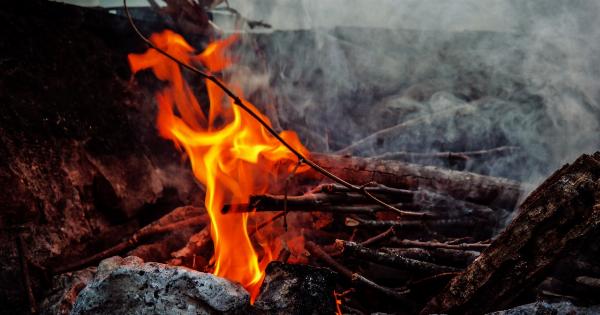Kidney stones are an increasingly common medical condition that affects millions of people worldwide.
While they may seem like a mere inconvenience at first, these stone-like formations within the kidneys can have potentially deadly consequences if left untreated. In this article, we will delve into the dangers associated with kidney stones and explore preventive strategies to mitigate their risks.
Understanding Kidney Stones
Kidney stones, also known as renal calculi, are hard and crystalline mineral substances that form in the kidneys.
These stones develop from the buildup of certain substances, such as calcium or uric acid, which are not effectively filtered out of the urine. Over time, these substances accumulate and clump together, forming small, pebble-like formations in the kidneys.
The Menace: Complications of Kidney Stones
While kidney stones typically start small and may go unnoticed, they can grow in size and cause severe complications if left unaddressed. Here are some potential dangers associated with kidney stones:.
1. Extreme Pain
One of the most common and excruciating symptoms of kidney stones is intense pain. As the stones move through the urinary tract, they can cause sharp and stabbing pain in the abdomen, lower back, or groin.
This pain is often compared to being stabbed with a knife, and it can come in waves, making it difficult to find relief. The intensity of this pain can be debilitating and significantly reduce a person’s quality of life.
2. Urinary Tract Infection (UTI)
Kidney stones can create a conducive environment for the development of urinary tract infections. These infections occur when bacteria enter the urinary tract and proliferate.
The presence of kidney stones provides additional surfaces on which bacteria can cling, making it easier for them to cause an infection. If not treated promptly, UTIs can lead to more severe kidney-related complications and even sepsis.
3. Obstruction of Urine Flow
As kidney stones grow larger, they risk obstructing the flow of urine through the urinary tract. This obstruction can prevent urine from flowing freely from the kidneys to the bladder, leading to a condition known as hydronephrosis.
If left untreated, hydronephrosis can cause permanent kidney damage, kidney failure, or other life-threatening complications.
4. Kidney Infections
Stagnant urine caused by the obstruction of urine flow can act as a breeding ground for bacteria, increasing the likelihood of kidney infections. These infections, known as pyelonephritis, can damage the kidneys and impair their function.
Additionally, kidney infections can result in symptoms such as fever, chills, back pain, and the presence of blood in the urine.
5. Renal Failure
Untreated kidney stones can eventually lead to chronic kidney disease and, in severe cases, kidney failure.
The progressive damage caused by recurrent kidney stones can impair the kidneys’ ability to filter waste products and maintain fluid balance in the body. Kidney failure is a life-threatening condition that requires ongoing medical intervention, such as dialysis or a kidney transplant.
Preventing Kidney Stones: The Key to Avoiding Deadly Consequences
While the potential dangers associated with kidney stones may seem ominous, there are several preventive measures individuals can take to minimize their risk. Here are some effective strategies to help prevent the formation of kidney stones:.
1. Stay Hydrated
Drinking an adequate amount of water is crucial for maintaining kidney health and preventing the formation of kidney stones. Water helps dilute minerals and substances in the urine, making it less likely for crystals to form and aggregate.
Aim to drink at least eight glasses (64 ounces) of water per day to promote optimal hydration.
2. Limit Sodium Intake
A high-sodium diet can increase the risk of kidney stones. Sodium promotes calcium retention in the kidneys, which can lead to stone formation. It is advisable to limit sodium consumption by reducing the intake of processed and fast foods.
Instead, opt for fresh, whole foods that are naturally low in sodium.
3. Maintain a Balanced Diet
Eating a balanced diet is essential for overall health and can help prevent the development of kidney stones. Incorporate a variety of fruits, vegetables, and whole grains into your meals.
Additionally, moderate your intake of oxalate-rich foods like spinach, rhubarb, and beetroot, as excessive oxalate can contribute to stone formation in susceptible individuals.
4. Consume Adequate Calcium
Contrary to popular belief, reducing calcium intake does not necessarily prevent kidney stones. In fact, consuming adequate amounts of calcium from food sources can actually lower the risk of stone formation.
Calcium binds to oxalate in the intestine, preventing it from being absorbed into the bloodstream and subsequently excreted through the kidneys.
5. Limit Animal Protein
Diets high in animal protein can increase the risk of kidney stone formation. Animal protein releases uric acid and alters urine chemistry, creating an environment favorable for stone formation.
Aim to limit the consumption of red meat, poultry, and seafood. Consider replacing some animal protein with plant-based alternatives like legumes or tofu.
6. Manage Underlying Medical Conditions
Certain medical conditions, such as obesity, diabetes, and high blood pressure, can increase the risk of kidney stone formation. It is vital to manage these conditions effectively through lifestyle modifications and appropriate medical interventions.
Regular check-ups and consultations with healthcare professionals can help identify and control factors contributing to stone formation.
Seeking Medical Intervention
While prevention is key, it is important to seek medical attention if you suspect kidney stones or experience severe and persistent symptoms. Early diagnosis and intervention can help prevent potential complications and ensure appropriate treatment.
A healthcare professional can conduct diagnostic tests and recommend the most suitable course of action based on your individual circumstances.
Conclusion
Kidney stones may initially appear as a benign condition, but their potential consequences should not be underestimated.
When left untreated, kidney stones can cause extreme pain, urinary tract infections, obstruct urine flow, lead to kidney infections, and even result in renal failure. However, by adopting preventive strategies such as staying hydrated, following a balanced diet, and managing underlying medical conditions, individuals can minimize their risk of developing kidney stones and potentially deadly complications.






























